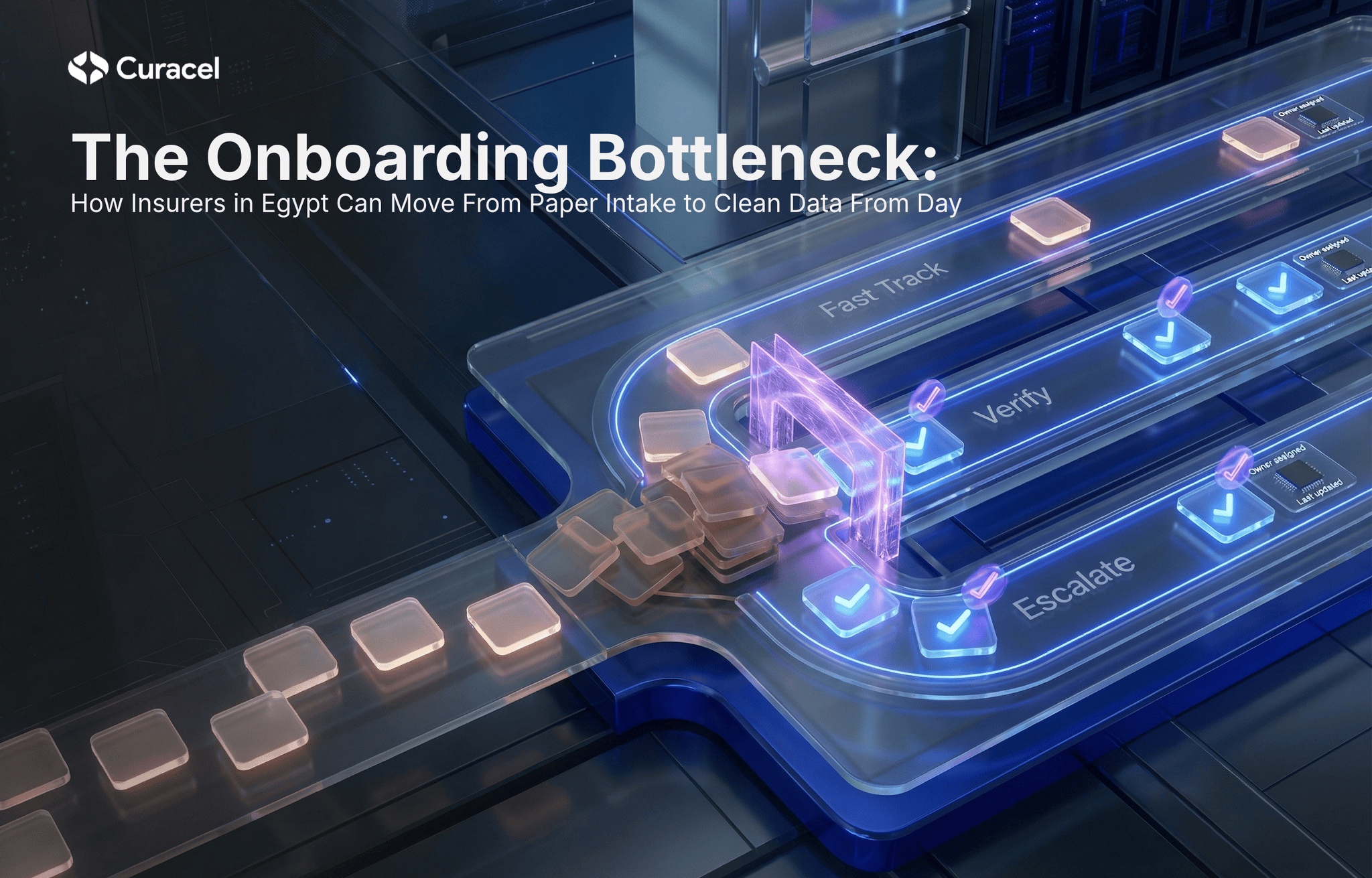Claims Management in Health Insurance: A Journey from Manual Processes to AI-Driven Transformation
Health insurance claims management has historically been one of the most critical yet complex components of healthcare systems. It ensures that healthcare providers are promptly paid for services, policyholders receive accurate coverage, and insurers maintain operational efficiency and profitability. Over the decades, claims management has evolved significantly, adapting new technologies to streamline processes and enhance accuracy. Today, with the rise of Artificial Intelligence (AI), claims management is undergoing its most transformative shift yet, paving the way for unprecedented efficiency and effectiveness in the healthcare industry.
A Brief History of Claims Management in Health Insurance
Traditionally, claims management in health insurance involved highly manual processes. Insurers and healthcare providers relied heavily on paper documents, leading to prolonged processing times, errors, and inefficiencies. Claims processing was labor-intensive, with significant human intervention needed at every step—verification, adjudication, settlement, and compliance checking.
The advent of digital technologies in the late 20th century brought improvements, such as computerized records and electronic data interchange (EDI). These technologies automated parts of the process, reducing errors and processing times. However, many inefficiencies persisted due to limited integration between disparate systems and continued reliance on manual oversight.
The AI Revolution in Claims Management
Artificial Intelligence has emerged as a game-changer, dramatically reshaping claims management in health insurance. AI technologies, including machine learning (ML), natural language processing (NLP), and predictive analytics, have introduced automation and intelligence to traditionally manual workflows, leading to notable benefits:
1. Enhanced Fraud Detection: AI algorithms can analyze vast amounts of data to identify unusual patterns indicative of fraudulent claims, reducing financial losses significantly. Machine learning models continuously learn from historical data, refining their ability to detect subtle fraud indicators previously unnoticed by manual processes.
2. Automated Claims Adjudication: Automation of claims adjudication through AI drastically accelerates processing times. AI-powered adjudication systems use predefined rules, historical data, and machine learning to make rapid and accurate decisions on claims approvals or denials. This significantly reduces manual intervention and ensures greater consistency and transparency.
3. Improved Accuracy and Reduced Errors: Manual claims processing has historically been prone to errors due to human oversight. AI-driven claims management minimizes errors by automating data entry, verification, and validation tasks, resulting in more accurate claim settlements and improved satisfaction among policyholders and healthcare providers.
4. Personalized Customer Experience: AI enables insurers to offer more personalized and proactive service to customers. Predictive analytics can forecast claim frequency and severity, enabling insurers to proactively manage risks and personalize insurance offerings, enhancing customer retention and satisfaction.
5. Cost Efficiency and Resource Optimization: AI-driven claims processing substantially lowers operational costs by reducing the need for extensive manual labor and minimizing errors. Automation frees up resources, allowing human personnel to focus on more complex and strategic tasks, thus enhancing overall productivity.

The Future of Claims Management
As AI continues to evolve, the future of claims management looks promising. Several key trends will likely define the next phase of transformation:
1. Integrated Systems and Interoperability: In the coming years, we can expect increased interoperability between healthcare provider systems and insurers' claims management platforms. Enhanced integration driven by AI will enable seamless data sharing, real-time processing, and greater operational efficiency across the healthcare ecosystem.
2. Advanced Predictive and Prescriptive Analytics: AI-driven predictive analytics will evolve into prescriptive analytics, guiding insurers on precise actions to take for risk management, customer retention, and strategic planning. Insurers will benefit from deep insights into policyholder behaviors, healthcare provider patterns, and emerging risks, enabling proactive interventions.
3. Blockchain Integration: Blockchain technology, combined with AI, offers significant potential for secure, transparent, and efficient claims management. Blockchain's decentralized nature will improve data security and trustworthiness, reducing fraud and ensuring transparency in claims processing.
4. Enhanced Regulatory Compliance: AI's capability to automatically monitor and enforce regulatory compliance will become increasingly crucial. Intelligent systems will continuously adapt to evolving regulations, ensuring that insurers remain compliant while avoiding hefty penalties.
5. Human-in-the-loop AI: Future claims management will increasingly rely on human-in-the-loop (HITL) approaches, blending the efficiency of AI with human oversight for quality control, complex decision-making, and handling sensitive cases. This approach ensures accuracy while maintaining customer trust and satisfaction.
Curacel: Leading AI-Driven Claims Management in Africa and Emerging Markets
Curacel stands at the forefront of leveraging AI in claims management within Africa and emerging markets. With a robust platform that integrates seamlessly with existing healthcare systems, Curacel automates and optimizes claims processes, drastically reducing fraud and accelerating claim adjudication times.
By utilizing advanced AI-driven fraud detection algorithms, predictive analytics, and automated adjudication capabilities, Curacel significantly enhances efficiency, accuracy, and customer satisfaction in health insurance operations. As the insurance industry continues to evolve, Curacel remains committed to driving innovation, helping insurers achieve operational excellence, and fostering healthier communities across Africa and beyond.
Ready to transform your health insurance claims management with cutting-edge AI solutions? Contact Curacel today and lead your organization into the future.
Abonnez-vous à notre newsletter pour recevoir du contenu hebdomadaire


























.svg)







